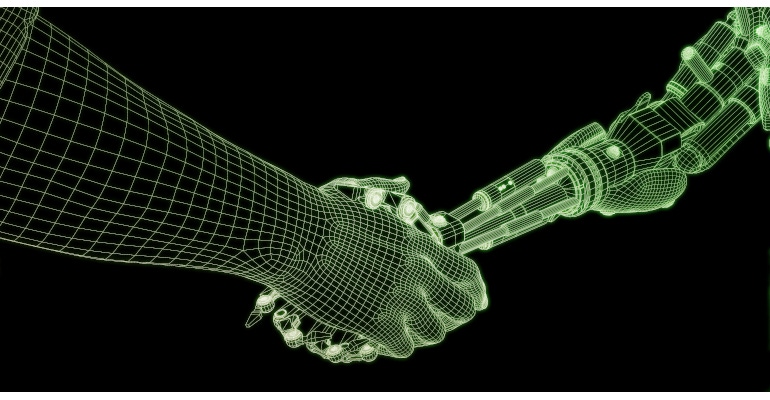A Combination of Human and Machine—The New Gold Standard for the Operating Room
Surgical robotics have been a hot focus in the medtech industry in the last decade, and a variety of robotic platforms are transforming minimally invasive surgery. Experts speaking during a panel discussion at BIOMEDevice Boston chimed in about the future of robots in medicine.
October 22, 2022

After discussing various aspects of robotics, AI, and automation in the operating room, panelists in the BIOMEDevice Boston session, “Surgical Robotics, Digital Technology, and Data Will Govern the Operating Room,” were asked a provocative question by an audience member: Will physicians be replaced by robots?
The attendee likened the issue to a similar challenge that the United States Air Force faced with the invention of drone technology, which, in some ways, bifurcated the job of the fighter pilot, one of the most senior, respected, and competitive positions in the Air Force. He said that someone with a high school education and six month’s training could operate a drone, but added that there is still a need for the human decision-making and manual operation that a fighter pilot provides.
“Do you think that it's possible that surgery is going to go the same way?” the attendee asked. “That there will be a bifurcation of robotic surgery conducted by someone trained on robotic surgery, and then traditional surgery conducted by someone trained in traditional means, perhaps even dealing in entirely different specialties?”
The panelists all weighed in on the issue. They included Aleksandra Popovic, innovation program manager, Imagine Guided Therapy at Philips; Tal Wenderow, venture partner at Genesis MedTech; Arvind Ramadorai, senior director, global marketing & P&L owner, digital-assisted surgery, surgical robotics at Medtronic; and Harel Gadot, company group chairman at MEDX Ventures Group. Most said that robotics will act as a safety measure and perform mundane tasks, while leaving complex decision-making skills to the human physicians.
Wenderow explained that, for very complex procedures, it is not worth designing a robotic program for the half a percent of cases that might be done. “I think if you bifurcate, you lose the key component, which is the physician,” he said. “You still need their decision-making.” He added, however, that using robotics will enable physicians to do more procedures.
Radiologists might have once felt threatened because AI could pick up tumors [that might have been missed], but now they see it as a complement to their practice, Ramadorai said. “I think it will be a similar model where some of the mundane tasks, some of the safety tasks can be taken over by the robot, while the surgeon can do the most value-added activity,” he explained. “The [physician] can be more selective about where they actually spend the time and effort of the machine. So, the combination of man and machine is going to be better than either of them alone.”
Earlier in the presentation before the question was posed, Popovic said that she thought doctors would care for patients and automation would take away technical tasks. She brought up bringing robots into the procedure versus bringing procedures to robots. “We should make procedures more effective to improve the outcomes, to improve the staff satisfaction, to make physicians happy,” she said, adding that physician burnout has been a problem for a long time. “To get that procedure better, to be able to have better care for patients, and also to have healthcare providers be happy."
Gadot offered a twist on the question and pondered whether we would lose the manual skills of the physician for the rare occasions that we do need them. “It will be a disaster,” he said. “The question I have always is, how do we look the other way around? I believe robotics will be the gold standard. How do we prepare for the rare occasion that we do need the human factor? And to be honest with you, I don't have an answer for that.”
About the Author(s)
You May Also Like



